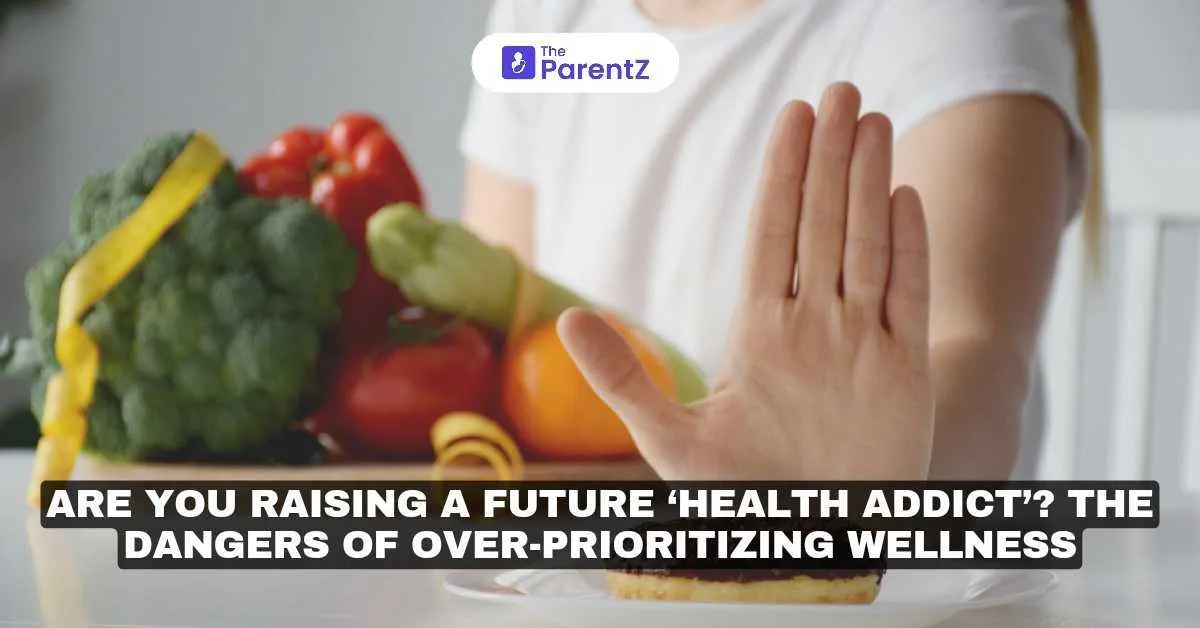As awareness around wellness grows, many parents aim to instill healthy habits in their children from a young age. But is it possible to focus too much on health? Could encouraging a healthy lifestyle lead to an obsession with exercise, food restrictions, or an unhealthy fixation on body image? In an era of fitness trackers, dietary trends, and social media influence, it’s important to ask: Are you raising a future health addict?
Why It’s Important to Avoid Health Obsession in Children
Children are growing up in a world where health and wellness trends are ever-present, from fitness influencers to “clean eating” diets. While a focus on wellness has many benefits, too much emphasis on health can lead to stress, low self-esteem, or even eating disorders in children. Teaching kids about wellness in a balanced way helps them develop a lifelong positive relationship with health. It’s about encouraging them to prioritize health for energy, joy, and vitality—not as a measure of self-worth or perfection.
How to Recognize Signs of Health Obsession
Health obsession can start subtly, and it may even seem like a positive interest at first. However, there are signs to watch for that could indicate your child is developing an unhealthy focus on wellness:
• Excessive Focus on Calories or Food Labels: If a child becomes overly concerned with the nutritional content of everything they eat, it could be a sign that they’re developing food anxiety.
• Rigid Exercise Habits: An obsession with exercising without flexibility, or feeling guilt over missed workouts, can be an early sign of unhealthy fixation.
• Avoidance of Social Situations: Kids who decline social events, like birthday parties, because they’re anxious about the food options may be leaning towards health obsession.
How to Encourage Healthy Habits Without Creating Pressure
1. Teach Wellness as a Journey, Not a Goal
Emphasize that wellness isn’t about achieving a perfect body or following a strict regimen. Explain to kids that health is about feeling good, having energy, and enjoying life. This approach helps kids appreciate the benefits of health without viewing it as an achievement they have to attain.
2. Model a Balanced Approach to Health
Children mimic what they see, so model a healthy, balanced approach in your own life. Show them that it’s okay to enjoy occasional treats, skip workouts when needed, and prioritize rest. Parents who view health flexibly—without guilt—pass on a more balanced mindset.
3. Focus on “How it Feels” Over “How it Looks”
Help children focus on how food and movement make them feel instead of how it makes them look. For example, emphasize that eating nutritious meals gives them energy for school and play, while exercise makes them feel strong and happy.
4. Incorporate Mindfulness and Stress Management
Introduce stress-relief practices like mindfulness, deep breathing, or journaling, so kids learn that wellness isn’t just about physical health but also about mental well-being. Show them how to manage stress without relying solely on physical health practices.
5. Avoid Labeling Foods as “Good” or “Bad”
Labeling foods can create guilt or anxiety about eating. Instead, talk about balance and moderation. Explain that all foods can fit into a healthy diet, but some support growth and energy more than others.
Conclusion
Raising health-conscious children in today’s world requires a mindful approach. By focusing on flexibility, positivity, and balance, parents can help children develop a lifelong appreciation for wellness—without the stress, obsession, or guilt. The goal is to raise kids who prioritize their well-being for the joy it brings, not as an obligation or source of validation. In the end, wellness should be a source of happiness and confidence, not pressure.








Be the first one to comment on this story.